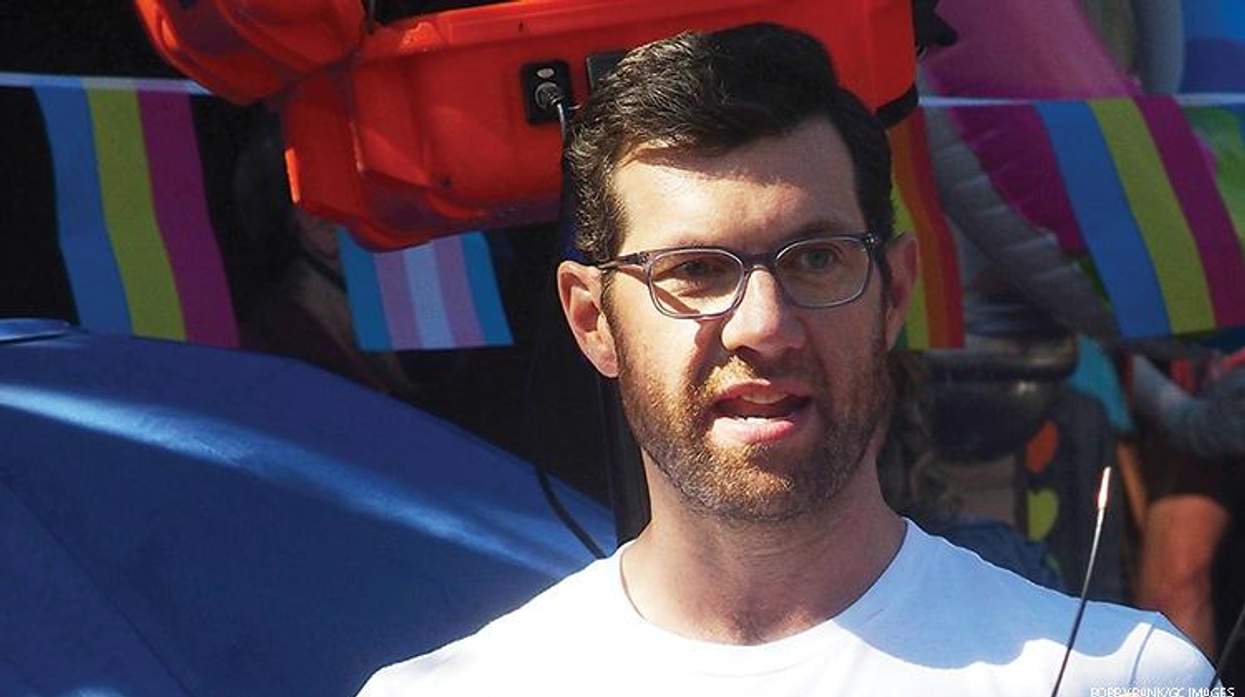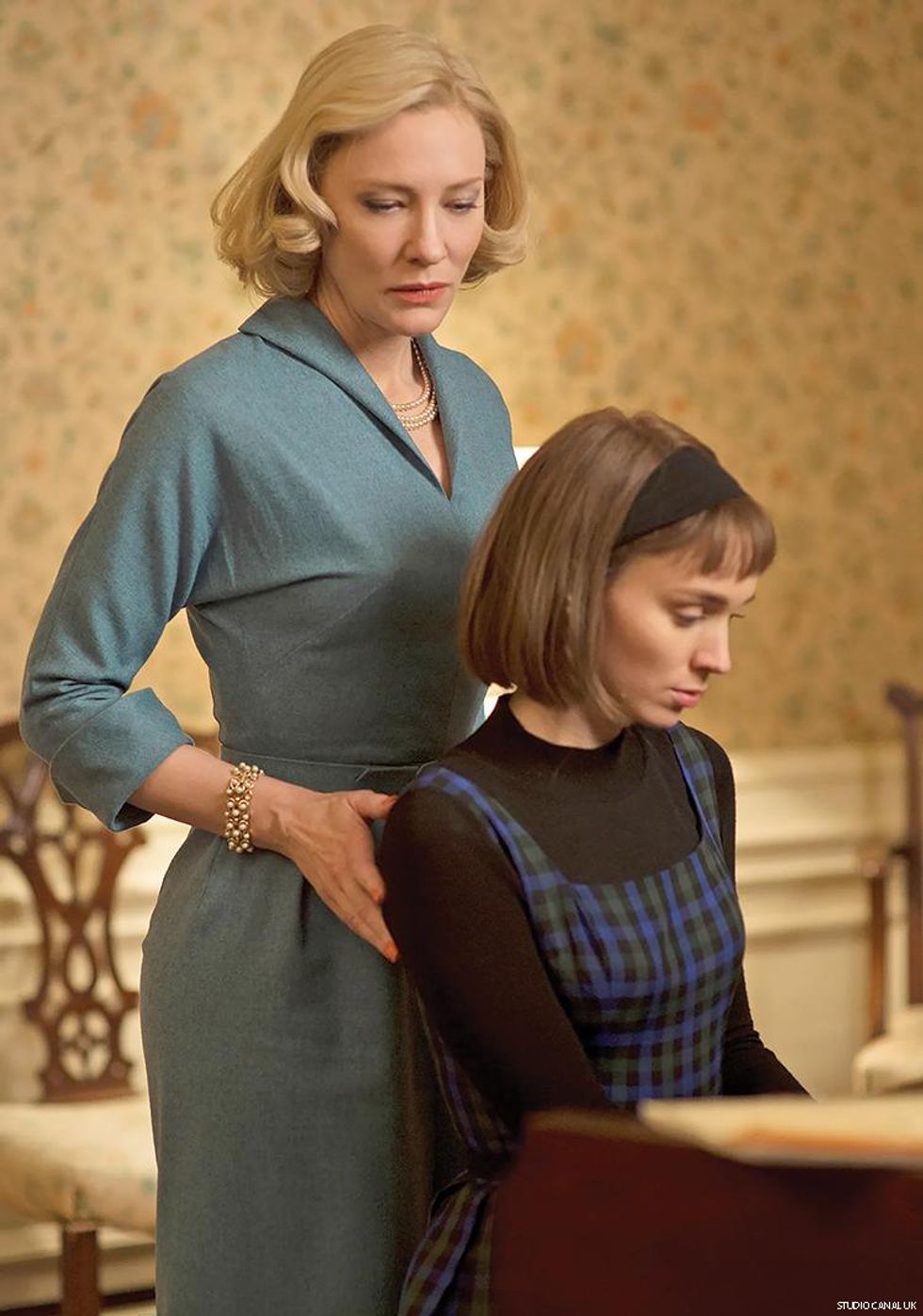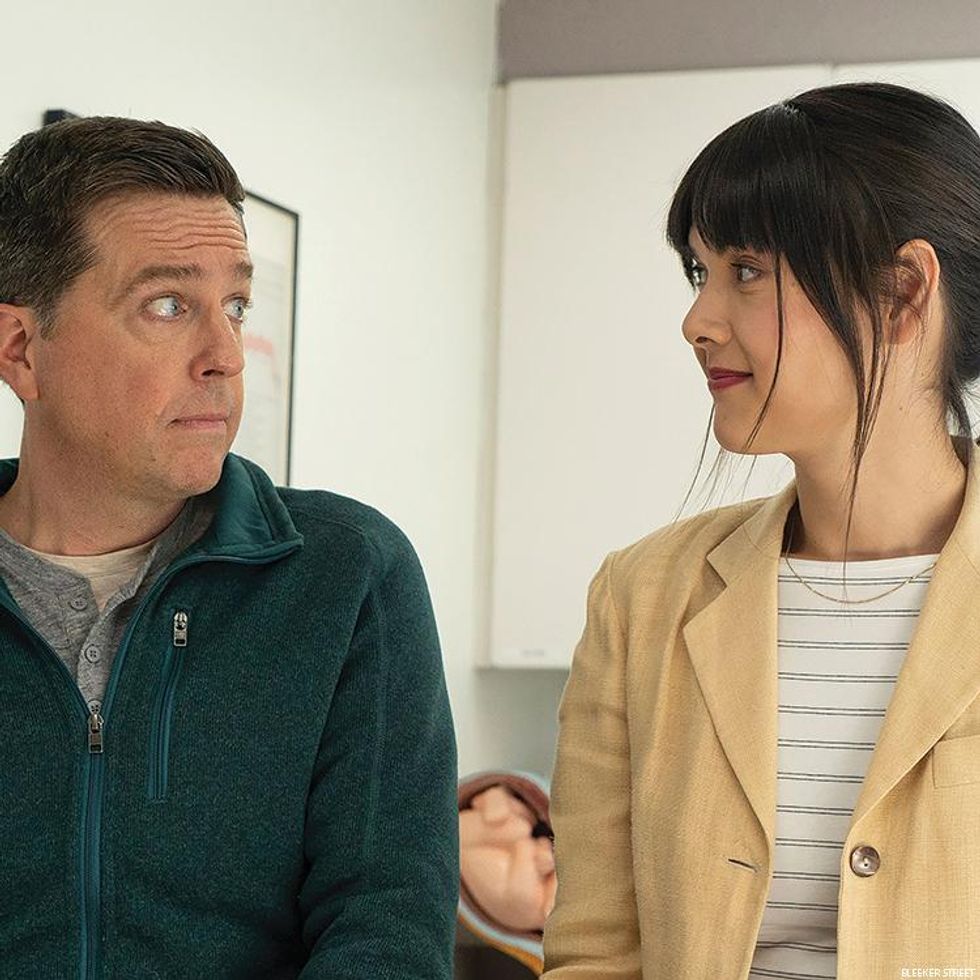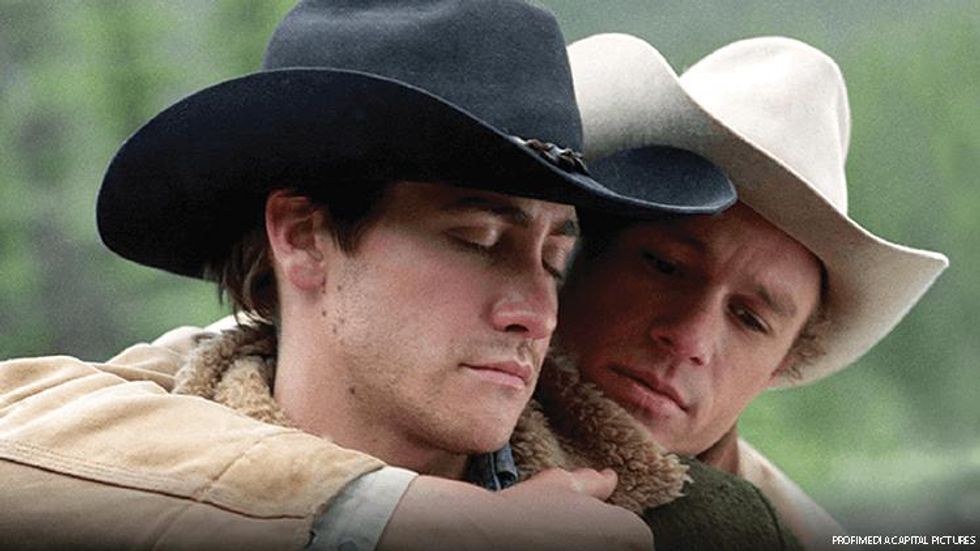This year marks the release of Bros, an LGBTQ+ milestone in Hollywood on multiple fronts. Notably, it is the first time a major studio, Universal Pictures, has green-lit a romantic comedy with two male leads. Second, every major cast member is part of the LGBTQ+ community; even the straight parts are portrayed by Friends of Dorothy. The film is co-written by and stars Billy Eichner, and the ensemble includes Luke Macfarlane, Amanda Bearse, Harvey Fierstein, Bowen Yang, Ts Madison, Symone, Miss Lawrence, Guillermo Diaz, and Guy Branum.
Bros is emblematic of a sea change in the entertainment industry regarding how power players value "authentic" queer casting -- that is, the debate over whether LGBTQ+ actors should be preferred for LGBTQ+ roles. On one side of this argument is the age-old thespian adage: Any actor can play any role. Indeed, from Brokeback Mountain to Carol, many moving portrayals have proven this mantra correct.

Cate Blanchett and Rooney Mara in Carol (2015)
However, on the other side of the debate is the cold reality that Hollywood, always eyeing the bottom line, has viewed LGBTQ+ actors as less commodifiable than their straight counterparts. Therefore, even queer-centered productions are habitually stocked with straight leads in the hopes of appealing to a wider (and presumably, more homophobic) audience. This playing field just isn't even, critics argue, evidenced by an active list compiled by The Advocate, which enumerates over 60 straight actors who have received Academy Award nominations for LGBTQ+ roles. In contrast, an out actor has never won for a queer part.
The result is a vicious cycle. Straight actors gain visibility and prestige for playing gay, and thus become more marketable for commercial productions; think Benedict Cumberbatch, whose two Oscar nods were for The Imitation Game and The Power of the Dog. Meanwhile, queer people are stranded between Scylla and Charybdis (trying to choose the lesser of two evils) -- considered not A-list enough to play their own stories, and too "other" to play any of the more abundant straight parts.
However, this ecosystem is changing. Fast. In fact, 2022 marks a major turning point in Tinseltown, confirms Richard Hicks, a prominent casting director known for Hell or High Water, Zero Dark Thirty, and Together Together. Hicks sees a film like Bros as a breakthrough moment equivalent to Marvel's Shang-Chi and the Legend of the Ten Rings, which demonstrated (yet again) that a movie with a cast from a historically marginalized community can be a success.

Ed Helms and Patti Harrison in Together Together (2021)
"I do think we're at a fantastic time in the evolution of the acceptance of gay actors playing gay roles," Hicks says. "Now I think there is a value placed on the authenticity of representing a gay character.... And therefore, we are more likely to be casting a gay actor to play a gay role than we've ever been. And I think that's, frankly, an awesome thing."
This change was not driven by the beneficence of Hollywood powers that be. Rather, Hicks sees a movement of modern-day viewers "standing up for gay people" as the catalyst. Audience members now "demand that [a production] has a level of authenticity that wasn't required before," he notes. "And Hollywood follows the audience."
Regarding any identity, consumers have less appetite for what they view as inauthentic portrayals. Indeed, productions now run the risk of sparking negative press for making choices that, while once common, are suddenly considered a faux pas. A prime example is straight actor James Corden in The Prom; his flamboyant performance was derided as "gayface" by critics and social media. And even when the performances are exceptional -- Henry Golding in Monsoon, and Stanley Tucci and Colin Firth as lovers in Supernova, for example -- the media conversation tends to focus not on the content of the film but on the appropriateness of its casting, often in interviews with the actors themselves.

Jake Gyllenhaal and Heath Ledger in Brokeback Mountain (2005)
It's not inherently immoral for a straight actor to "take" a gay part. Kate Winslet noted that Ammonite likely would never have been made without an A-lister like herself as the lead. And Firth, in his 2021 cover story with The Advocate, observed how the act of portraying someone different can engender "a very positive experience of commonality, which perhaps would have been undiscovered otherwise."
Many gay actors agree with this point. John Cameron Mitchell -- who gives queer teeth to the Tiger King in Joe vs. Carole -- praises how portraying roles from different backgrounds is "the beginning of empathy." He also bemoans how debates over authenticity -- like whether every cast member in West Side Story is Puerto Rican, for example -- can have viewers missing the forest for the trees.
However, even Mitchell wants to see "queer people to the front of the line" during consideration for LGBTQ+ roles. As he notes in the interview with this author for The Advocate's sister magazine Out, there is a lot that lived experience can bring to the table. And as more queer actors are scoring parts, the age of the out movie star is fast dawning.
As with any advancement in LGBTQ+ equality, this conversation around casting has been led by the transgender community. For the better part of the past decade, outspoken actors have been vocal in their criticism of "transface" roles -- from Jared Leto's Oscar-winning Rayon in Dallas Buyers Club to Scarlett Johansson in Rub & Tug. In 2018, the strength of the movement was demonstrated when Johansson backed down from that role and apologized. If the importance of lived experience is now considered a criterion for gay roles, then trans folks deserve the thanks.
"It's undeniable that the trans community has been instrumental in moving the needle and allowing the larger community to understand that authenticity matters, whether that's a trans person playing a trans role or a gay person playing a gay role. We're the better for it," Hicks confirms.
But a binary future of straight-playing-straight and LGBTQ-playing-LGBTQ is not the end goal. The aim is conversation that engenders a greater awareness of historical exclusion in Hollywood and a future with equality of opportunity. Hicks notes with pride how, in Together Together, which he cast, trans actress Patti Harrison portrays a cisgender lead -- a woman who becomes pregnant and forms a relationship with the father, played by Ed Helms. "Patti Harrison playing that role moves the conversation forward. And that is a wonderful thing," he says.
To be part of this movement at this point in history is a dream come true for a gay casting director. "I feel so lucky. Because to be in casting, you have an opportunity to move the conversation forward," Hicks says. And ultimately, he stresses, it's the storytelling that benefits from less exclusion in the industry.
"We fight as hard as we can to make [a production] the best, most beautiful thing we can," he concludes. "Sometimes we win those fights, sometimes we don't. But essentially, we are there to make it sing."
This story is part of The Advocate's 2022 Entertainment Issue, which is out on newsstands April 2, 2022. To get your own copy directly, support queer media and subscribe -- or download yours for Amazon, Kindle, Nook, or Apple News.







































































Charlie Kirk DID say stoning gay people was the 'perfect law' — and these other heinous quotes